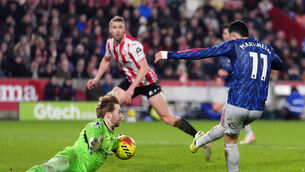O’Neill can’t separate club and country

What, I wonder, was the absolute pinnacle of his playing career: Northern Ireland beating Spain in the World Cup finals or Nottingham Forest lifting two European Cups?
Ireland’s manager puffs out his cheeks before reeling in the years.














